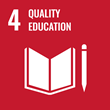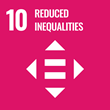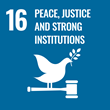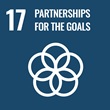Project information
Demarginalizing Medieval Georgia: History of Art History between Colonial Perspective and Nationalist Appropriation (1921–1991)

- Project Identification
- 101026166
- Project Period
- 1/2022 - 12/2026
- Investor / Pogramme / Project type
-
European Union
- Horizon 2020
- MSCA Marie Skłodowska-Curie Actions (Excellent Science)
- MU Faculty or unit
- Faculty of Arts
Arising from a cultural crossroads between Europe and Asia, the art of medieval Georgia, South Caucasus, is certainly one of the most extraordinary visual cultures of the pre-modern world. Its identity, however, has been shaped by politically oriented scholarship. On one side, studies by Russian as well as Western scholars presented it from a colonial viewpoint as the artistic periphery of Byzantium. This reflected the marginal political position of Georgia within the Russian and then Soviet empire. On the other hand, the clear intention of Georgian scholarship throughout the 20th century was (and still is) to demonstrate that Georgian medieval art, considered as “national”, is fully original and independent. Such contradictory perspectives have divided the field of Georgian medieval art history until today.
The scientific goal of this project is to demonstrate the progressive historiographic construction of these different perspectives. More concretely, I will analyse and compare the three dominant narratives (Russian, Georgian and Western) present in art historical textbooks about Georgian medieval art, all within the context of the 20th century political and social history. By revealing and deconstructing political and ideological strategies in past scholarship, the ambition of the project is to de-marginalize Georgian medieval art and to prepare the terrain for new and more complex research in the field. Such revision of colonial and national narratives is long overdue and will lay the necessary ground for future studies of medieval world heritage within the framework of a transcultural approach. Moreover, the analysis of the general mechanisms of the interconnection between national and supra-national politics and the discourse on the past is in line with EU global strategies, helping debates about the cultural heritage within the process of an intellectual de-colonization.
The Centre for Early Medieval Studies of Masaryk University has strong record of publications in the field of the history of art history, and endeavours to implement innovative methodologies in the study of the medieval art of the Mediterranean and Caucasian territories. Moreover, with its successful involvement in media production, CEMS will provide an excellent support in disseminating the main results of this project.
Sustainable Development Goals
Masaryk University is committed to the UN Sustainable Development Goals, which aim to improve the conditions and quality of life on our planet by 2030.
Publications
Total number of publications: 7
2025
-
Rene Schmerling: The First Woman and Art Historian at the Georgian Soviet Academy of Sciences and Her Forgotten Legacy.
Year: 2025, type: Appeared in Conference without Proceedings
2024
-
Between Reverence and Reclamation : Musealization of Medieval Church Treasures in Georgia’s National Museum
Year: 2024, type: Appeared in Conference without Proceedings
-
From Art to Arms: The Rise of Georgian Art History and the Post-War Shift in Soviet Priorities
Year: 2024, type: Appeared in Conference without Proceedings
-
From Colonial Margins to National Center: The Art History of Medieval Georgia in the 20th Century
Year: 2024, type: Requested lectures
2023
-
From the Transcaucasian Periphery to the Georgian Socialist Soviet Republic: Medieval Art of Georgia Through the Pages of Russian Encyclopaedias (1893–1949)
Year: 2023, type: Appeared in Conference without Proceedings
-
Medieval Art in Georgia through the Soviet Lens: from Colonialist Marginalization to Nationalist Acclamation
Year: 2023, type: Requested lectures
-
Skeletons, Stones, and Stories: Unearthing Georgia's European Identity
Year: 2023, type: Requested lectures



